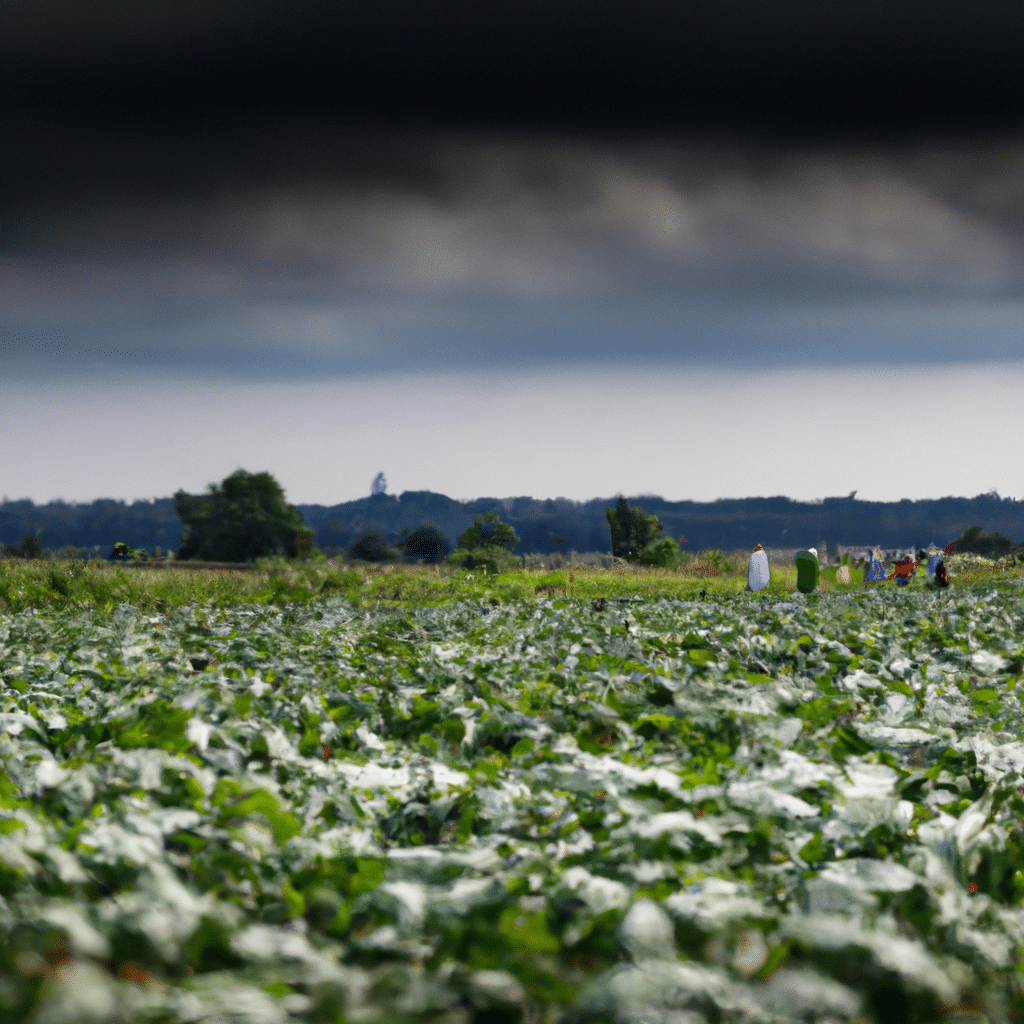As climate change continues to pose significant challenges for agriculture worldwide, organic farmers are at the forefront of implementing innovative strategies to mitigate its impacts. With a commitment to sustainable and environmentally-friendly practices, organic farming methods are proving to be adaptable and resilient in the face of changing weather patterns. In this article, we will explore how organic farmers are weathering the storm of climate change, highlighting their efforts to adapt and thrive in an ever-changing agricultural landscape.

The Impact of Climate Change on Agriculture
Climate change has brought about a multitude of challenges for farmers across the globe. Rising temperatures, erratic rainfall patterns, increased frequency of extreme weather events, and the spread of pests and diseases have all disrupted traditional farming practices. Conventional agriculture, reliant on synthetic inputs and intensive farming techniques, often exacerbates these challenges. However, organic farmers have embraced a holistic approach that prioritizes soil health, biodiversity, and resilience, making them better equipped to face the adverse effects of climate change.
Building Resilient Soil
Organic farmers understand that healthy soil is the foundation of a thriving farm ecosystem. By employing regenerative practices such as crop rotation, cover cropping, and composting, they enhance soil fertility and structure. These practices not only sequester carbon from the atmosphere but also improve water retention, reducing the vulnerability of crops to droughts and floods. Organic farmers also prioritize the use of organic matter and beneficial microorganisms, fostering a balanced soil ecosystem that can better withstand extreme weather conditions.
Diversification of Crops
In response to the changing climate, organic farmers are diversifying their crop selections. By growing a variety of crops, they spread the risk of crop failure and enhance the overall resilience of their farms. Additionally, diverse cropping systems help to maintain soil health, reduce pest and disease pressures, and promote biodiversity. Organic farmers often incorporate heirloom and traditional varieties, which are well-adapted to local climates and possess inherent resilience to weather fluctuations.
Water Management Strategies
Water scarcity and unpredictable rainfall patterns are significant challenges posed by climate change. Organic farmers are implementing various water management strategies to optimize water use and minimize waste. Techniques such as precision irrigation, rainwater harvesting, and the use of mulch to retain soil moisture are becoming increasingly prevalent in organic farming systems. These practices not only ensure the efficient use of water resources but also help to mitigate the impacts of droughts and water scarcity on crop production.
Natural Pest and Disease Control
In an era of climate change, pests and diseases are thriving and evolving at an alarming rate. Organic farmers rely on natural pest and disease control methods, such as biological control agents, crop rotation, and habitat manipulation, to manage these challenges. By promoting biodiversity on their farms, organic farmers encourage the presence of beneficial insects and microorganisms that act as natural predators or disease suppressors. This integrated approach reduces the reliance on synthetic pesticides and minimizes the risk of pesticide resistance.
Community and Knowledge Sharing
In the face of climate change, organic farmers understand the importance of collaboration and knowledge sharing. Through farmer networks, cooperatives, and community-supported agriculture initiatives, organic farmers exchange information, experiences, and best practices to collectively adapt to the changing climate. This collaborative approach enables farmers to learn from each other’s successes and failures, fostering resilience and innovation within the organic farming community.
Conclusion
Organic farmers are rising to the challenge of climate change by implementing sustainable and adaptive practices. Their commitment to building resilient soil, diversifying crops, managing water resources, employing natural pest and disease control methods, and fostering community collaboration sets them apart as pioneers in climate-smart agriculture. As we navigate the uncertain future of our planet, it is essential to support and learn from organic farmers as they continue to weather the storm of climate change and provide a blueprint for a sustainable agricultural future.



